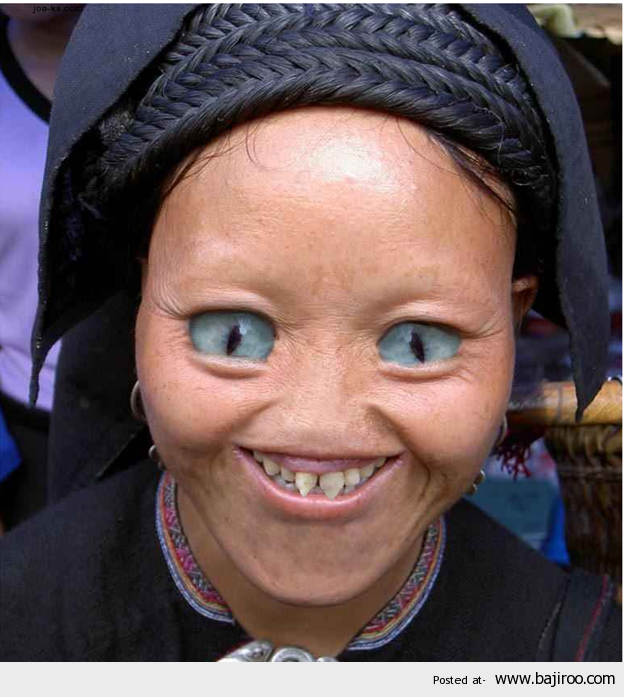Understanding The Concept Of "Ugly Person": Beyond The Surface
The term "ugly person" often evokes strong emotions and reactions, but what does it truly mean? In a world focused on physical appearance, labeling someone as "ugly" can have profound implications, both socially and psychologically. This article aims to explore the nuances behind this term, examining its origins, cultural perceptions, and the deeper societal issues it signifies.
Throughout history, the concept of beauty has been closely tied to human worth and value. Individuals labeled as "ugly" may face discrimination, bullying, and social isolation. This article seeks to unpack these experiences and highlight the importance of understanding beauty in a more inclusive and compassionate manner. We will delve into the psychological impacts of being labeled as "ugly" and discuss how society can shift its perspective on beauty.
Ultimately, the goal is to foster a dialogue around self-acceptance and the celebration of diversity in appearance. By examining the notion of the "ugly person," we can begin to challenge the stereotypes that persist in our culture and work towards a more empathetic society.
Table of Contents
- 1. Definition of an "Ugly Person"
- 2. Cultural Perceptions of Beauty and Ugliness
- 3. Psychological Impact of Being Labeled "Ugly"
- 4. Social Implications of Beauty Standards
- 5. Moving Beyond Appearance: The Importance of Inner Beauty
- 6. Real Stories: Experiences of Those Labeled as "Ugly"
- 7. Changing the Narrative: Embracing Diversity in Beauty
- 8. Conclusion
1. Definition of an "Ugly Person"
The term "ugly person" is often used to describe someone who does not conform to societal standards of beauty. However, beauty is subjective and varies across different cultures and communities. Here are some key points to consider:
- Beauty standards are influenced by media, culture, and personal experiences.
- The label of "ugly" can be harmful and perpetuate negative stereotypes.
- It is essential to recognize that beauty is more than skin deep.
2. Cultural Perceptions of Beauty and Ugliness
Cultural perceptions play a significant role in defining what is considered beautiful or ugly. In many cultures, beauty is associated with specific physical traits, while those who lack these traits may be deemed unattractive. Some factors influencing cultural perceptions include:
- Media representation: Television, films, and advertising often promote narrow definitions of beauty.
- Historical context: Standards of beauty have evolved over time, reflecting societal changes.
- Globalization: Exposure to different cultures can reshape perceptions of beauty.
2.1 The Role of Media
Media plays a crucial role in shaping beauty standards. With the rise of social media platforms, the pressure to conform to these standards has increased significantly. Studies show that exposure to idealized images can lead to feelings of inadequacy and low self-esteem.
2.2 Historical Context of Beauty
Throughout history, various cultures have had different ideals of beauty. For instance, in some societies, fuller bodies were once seen as a sign of wealth and prosperity, while in others, slimness is revered. Understanding this historical context is vital in recognizing the fluid nature of beauty standards.
3. Psychological Impact of Being Labeled "Ugly"
The psychological effects of being labeled as "ugly" can be profound and long-lasting. Individuals may experience:
- Low self-esteem and self-worth
- Social anxiety and withdrawal from social interactions
- Increased risk of mental health issues such as depression and anxiety
Research indicates that those who perceive themselves as unattractive often struggle with body image issues, leading to unhealthy coping mechanisms.
4. Social Implications of Beauty Standards
Beauty standards have far-reaching social implications. Individuals deemed "ugly" may face discrimination in various aspects of life, including:
- Employment opportunities: Studies show that attractive individuals are often favored in hiring processes.
- Social relationships: People may avoid forming connections with those labeled as unattractive.
- Access to services: There may be biases in healthcare and customer service based on appearance.
5. Moving Beyond Appearance: The Importance of Inner Beauty
While societal perceptions of beauty often focus on physical appearance, it is essential to emphasize the value of inner beauty. Characteristics such as kindness, empathy, and confidence contribute significantly to a person's overall attractiveness. Here are some key points to remember:
- Inner beauty fosters deeper connections with others.
- Embracing inner beauty leads to greater self-acceptance.
- Society should celebrate diversity in all its forms, including personality and character.
6. Real Stories: Experiences of Those Labeled as "Ugly"
Hearing real stories from individuals who have been labeled as "ugly" can provide valuable insights into their experiences and challenges. These narratives often highlight resilience and the journey towards self-acceptance. Some common themes include:
- Overcoming bullying and discrimination
- Finding communities that celebrate diversity
- Learning to love oneself beyond societal standards
7. Changing the Narrative: Embracing Diversity in Beauty
To shift societal perceptions, it is crucial to promote diversity in beauty standards. Initiatives can include:
- Encouraging media representation of all body types and appearances
- Educating individuals on the importance of self-acceptance
- Creating safe spaces for discussions about beauty and self-worth
8. Conclusion
In conclusion, the concept of an "ugly person" is deeply rooted in societal perceptions of beauty. By understanding the implications of this label and advocating for a more inclusive definition of beauty, we can foster a culture of acceptance and empathy. It is essential to challenge stereotypes and celebrate the diversity that exists within our communities.
We invite you to share your thoughts on this topic in the comments below. Let’s continue the conversation about beauty and self-acceptance together.
Thank you for reading! We hope you found this article enlightening and encourage you to explore more content that promotes understanding and compassion.
What Order Are The Tinkerbell Movies? A Complete Guide
Daniel Pitout: A Comprehensive Insight Into His Life And Career
Exploring The Family Background Of Jurnee Smollett: A Deep Dive Into Her Parents


